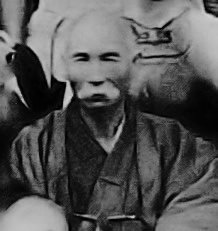Rainhill Kase Ha Shotokan Karate Academy

Master Ankō Itosu

Born in Gibo Village, Shuri, Okinawa, in 1831, Master Ankō Itosu was was instrumental in the introduction of karate into Okinawa's schools and the development of the systematic method of teaching karate techniques that are still in practice today.
While Master Itosu did not invent karate himself, he modified the kata forms he learned from his master, Master Sōkon Matsumura, and taught many karate masters including Master Gichin Funakoshi.
In October 1908, Itosu wrote a letter, Ten Precepts (Tode Jukun) of Karate, to the Ministry of Education and the Ministry of War in Japan which was influential in the spread of karate. Thus Master Itosu is considered by many to be the true "father of modern karate", although this title is also often given to his student, Master Gichin Funakoshi who spread karate throughout Japan.
Master Itosu passed away on March 11 1915, aged 83-84.
"Self-defence, self-confidence, discipline and self-control. The values you learn are priceless".
Back to top
Ten Precepts of Karate
Karate did not develop from Buddhism or Confucianism. In the past the Shorin-ryu school and the Shorei-ryu school were brought to Okinawa from China. Both of these schools have strong points, which I will now mention before there are too many changes:
- Karate is not merely practiced for your own benefit; it can be used to protect one's family or master.
It is not intended to be used against a single assailant but instead as a way of avoiding a fight should one be confronted by a villain or ruffian.
- The purpose of karate is to make the muscles and bones hard as rock and to use the hands and legs as spears.
If children were to begin training in Tang Te while in elementary school, then they will be well suited for military service.
Remember the words attributed to the Duke of Wellington after he defeated Napoleon: "The Battle of Waterloo was won on the playing fields of Eton."
- Karate cannot be quickly learned.
Like a slow moving bull, it eventually travels a thousand miles.
If one trains diligently every day, then in three or four years one will come to understand karate.
Those who train in this fashion will discover karate.
- In karate, training of the hands and feet are important, so one must be thoroughly trained on the Makiwara.
In order to do this, drop your shoulders, open your lungs, take hold of your strength, grip the floor with your feet, and sink your energy into your lower abdomen.
Practice using each arm one to two hundred times each day.
- When one practices the stances of Tang Te, be sure to keep your back straight, lower your shoulders, put strength in your legs, stand firmly, and drop your energy into your lower abdomen.
- Practice each of the techniques of karate repeatedly, the use of which is passed by word of mouth.
Learn the explanations well, and decide when and in what manner to apply them when needed.
Enter, counter, release is the rule of releasing hand (torite).
- You must decide if karate is for your health or to aid your duty.
- When you train, do so as if on the battlefield.
Your eyes should glare, shoulders drop, and body harden.
You should always train with intensity and spirit, and in this way you will naturally be ready.
- One must not over train; this will cause you to lose the energy in your lower abdomen and will be harmful to your body. Your face and eyes will turn red.
Train wisely.
- In the past, masters of karate have enjoyed long lives.
Karate aids in developing the bones and muscles.
It helps the digestion as well as the circulation.
If karate should be introduced beginning in the elementary schools, then we will produce many men each capable of defeating ten assailants.
I further believe this can be done by having all students at the Okinawa Teachers' College practice karate.
In this way, after graduation, they can teach at the elementary schools at which they have been taught.
I believe this will be a great benefit to our nation and our military.
It is my hope you will seriously consider my suggestion.
Itosu Anko, October 1908 (Meiji 41, Year of the Monkey).
"You must "be" before you can "do".
Back to top
© Rainhill Kase Ha Shotokan Karate Academy. All Rights Reserved.